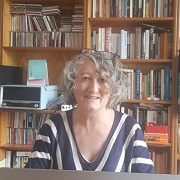
Professor Daniel Carey, Director of the Moore Institute NUI Galway and IHA Board Member, recently called for a significant investment across the fields of the humanities and the social sciences ‘in order to address the effects of a crisis that threatens not only our physical health but also our social, political and economic wellbeing’. If one considers doctoral researchers of all disciplines as potential problem solvers for national and global challenges (such as the current Covid-19 crisis), this must include significant investment in Postgraduate Researchers.
The Postgraduate Research Task Group of AHECS (The Association of Higher Education Careers Services) were curious to find out if strategic investment by the Irish Government in applied research and development over the past twenty years, has led to a different research experience for Arts & Humanities and Social Science (AHSS) postgraduate researchers (PGRs) in comparison to their Science, Technology, Engineering and Mathematics (STEM) counterparts. The group (comprising representatives from DCU, MU, TCD, UCC, UCD and UL) examined anonymized data from The Irish Survey of Student Engagement for Postgraduate Research Students National Report 2019 through the prism of career and skills development. The paper which was issued in May ‘An Exploration Career & Skills Development among Arts, Humanities and Social Science Postgraduate Research Students in Ireland’provides a snapshot of Funding, Motivations, Career Aspirations and Development Opportunities of PGRs across Irish Higher Education Institutions (HEIs). The idea behind the study was (in addition to understanding the experiences and perceptions of the two groups) to inform best practice in professional skills training and development to support the employability of AHSS PGRs.
In terms of funding, the report shows that 30% of STEM PGRs were funded in comparison to 13% of AHSS (a 17% disparity) and only 7% of AHSS received a grant in comparison to STEM (15% disparity). Possible reasons for the difference could be that since the late 1990s in Ireland, large-scale funding awards were directed towards research and development in STEM. These awards led to increased numbers of researcher positions and contributed, either directly or through overheads, to increased budgets for equipment, travel and training. It is conceivable that those higher numbers of AHSS who are self-funded would not have budgets for travel to conferences where networking takes place. What we don’t know (as it was not asked in the survey) if those who were self-funded worked part-time to help support themselves.
There were notable disparities in Motivation for embarking on a research degree. 74% of AHSS PGRs reported to be driven by interest in their subject versus 64% of STEM. A possible reason for this disparity may be that large scale funding projects in STEM advertise more pre-defined PhD funded positions. In more recent times there has been increased investment in cohort training of STEM PhDs (such as SFI CRTs in ICT) which offer high bursaries with professional training in Ireland. With less advertised funded positions, there is a general expectation that humanities students themselves conceptualise and lead their own research projects. The combination of AHSS PGRs driven by motivation and more likely to self fund, paints a strong picture of creative committed individuals with strong critical and thinking and time management skills. The first question is do AHSS Researchers recognise the value of their skills which are ranked in the top 5 most sought after attributes listed by employers over the past number of years?The second question is do they clearly articulate the transferability of those essential skills to prospective employers? The British Academy in 2017 in its paper ‘The Right Skills: Celebrating Skills in the Arts, Humanities and Social Sciences’ states that Humanities doctoral students do not realise how transferable their skills are.

Career Aspirations:
When looking at Career Aspirations - AHSS reported to be 16% more likely then STEM to aspire to an academic career and 15% less likely to look for a research career outside of higher education. When asked about seeking career advice the report indicated that less than one third of all PGRs are availing of careers advice. We don’t know why AHSS PGRs are more persistent in aspiring to an academic career. Reports vary on how many PGRs end up in tenured academic positions. Some reports (HEA 2016) state 20-30% while Schillebeeckx (2013) who studied Biotechnology Doctoral graduates in the USA puts the figure at less than 10%. It is not known whether AHSS PGRs are unaware of the findings, or have little awareness of careers outside of academia and/or unaware of available career supports. This makes a case for all PGRs (but particularly AHSS) be signposted to career supports from the outset – as early as orientation with interventions at further strategic intervals throughout their studies to help identify skills gaps.
The task group also examined Development Opportunities and differences arising between AHSS and STEM. AHSS reported 19% less likely to be working as part of a team. This statistic did concern the authors as for the past number of years teamworking is cited as a key employability skill. It is has been consistently listed over the past 5 years in numerous sources as one of the top essential skill. It may be a fact that AHSS have less opportunities for teamwork or that they are not aware of the transferability of their skills. Possible reasons for the higher percentage from STEM reporting team experience, could be that they perceive themselves as team workers because they work in a laboratory or Institute setting. Either way it cannot go unnoticed by stakeholders in PGR professional development. The authors would like to see, through additional funding and/or creative re-configuration of non-academic modules to build more teamwork into the PhD educational experience.
The authors were surprised at the responses in relation to taking part in a placement or putting training in entrepreneurship & innovation into practice. The expectation that STEM PGRs would have a significantly higher level of industry engagement, as applied research funding entails working in close collaboration with industrial partners, was not borne out. Less than 20% of all PGRs reported taking part in an internship and less than 10% of all put training or entrepreneurship into practice. An important argument for inclusion of Entrepreneurial skills is that these attributes make PhD researchers especially valuable to R & D active firms. Academic positions have changed over time so that academics themselves are, necessarily, entrepreneurial in ‘bidding’ for research, managing funds, leading people and delivering projects on time. Embedding enterprise and entrepreneurship opportunities and education across all levels of studies and in all subjects is recommended by ‘The Right Skills: Celebrating Skills in the Arts, Humanities and Social Sciences’.
Since the publication of this paper, Ireland has welcomed the appointment of Minister Simon Harris to a new department of Further and Higher Education, Research, Innovation and Science . We hope that this paper will influence stakeholders to provide additional funding to build more development opportunities, such as teamwork and entrepreneurship in the AHSS postgraduate research experience.
Albert Einstein once wrote ‘In the midst of every crisis, lies great opportunity’. The unpredictable future brings interesting problems to solve. However, researchers are adept at dealing with ambiguity and learn to thrive in the process. The Covid-19 pandemic may change the hierarchy and value of skills but the need for resilient problem solvers will only increase. Careers professionals are very aware of the wider economic landscape and labour market trends. They are well placed to support, particularly AHSS PGRs, to re-frame global and societal challenges and see them as opportunities to build interesting and meaningful careers while contributing to a better world.
Authors: Ger Lardner (Chair) UCD; Elaine Kiely UL; Claire Murphy NUIG; Marie Murphy MU; Siobhan Murphy DCU; Deirdre Parker UCC; Marita Porter UCD; Orlaith Tunney TCD.


